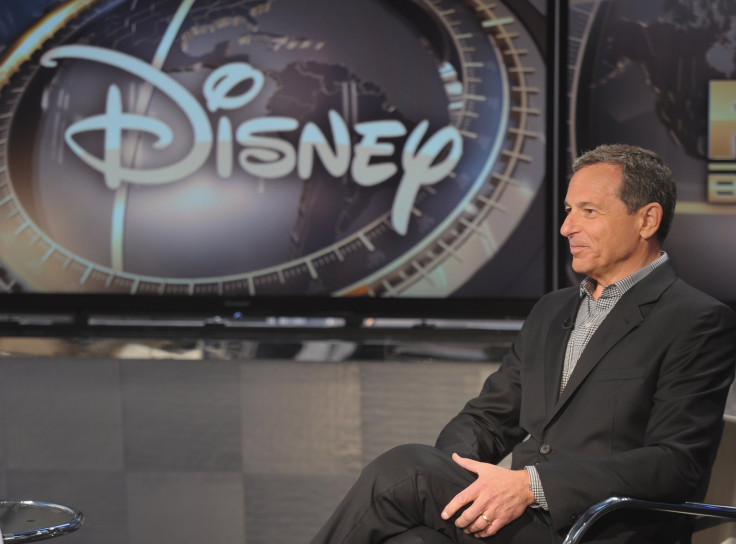Disney Got The Better End Of Its Hulu Deal With Comcast

Disney (NYSE:DIS) recently gave its Hulu co-owner Comcast (NASDAQ:CMCSA) the right to sell NBCUniversal's stake in the streaming service in early 2024 in exchange for operational control of the company now. Comcast has the option to sell its 33% stake based on Hulu having a minimum valuation of $27.5 billion at the time of the sale. Disney has the option to buy under the same terms. If the put/call option is exercised at that valuation, it works out to an 83% premium sale price over what Hulu just paid for AT&T's 9.5% stake.
But there are a couple of important details that make that premium look a lot better for Disney investors, not least of which is that Comcast can't exercise its option for four and a half years. Meanwhile, Disney obtains Comcast's board seats immediately and takes full control over the company to do practically whatever it wants strategically.
Here's why Disney got the better end of the deal.
Four-and-a-half years is a long time
Disney doesn't think Hulu will be profitable until 2023 at the earliest. In the meantime, Hulu will make capital calls on its owners to fund its losses. Disney expects Hulu to post an operating loss of about $1.5 billion this year.
If Comcast decides not to make any further cash investments in Hulu, it can sell equity back to the company instead, diluting its share. The agreement put a minimum on Comcast's stake in Hulu at 21%, which it could sell for $5.8 billion in 2024.
The situation where Comcast decides not to pour any more cash into Hulu and exercise its option to sell in 2024 is most comparable to if Disney just bought out the company's stake today. In that situation, Disney would pay based on the equivalent of a $17.3 billion valuation.
But it would be paying off Comcast's share in 2024 dollars, so remember to factor in some inflation. At 2% inflation over the next four and a half years, Disney's agreeing to pay a valuation of $15.8 billion in today's dollars.
That's not a huge premium over what AT&T received for its stake in Hulu last month. Importantly, Disney is gaining a lot more value from Comcast's board seats, so a premium is certainly warranted. At an investors conference shortly after announcing the agreement, CEO Bob Iger said Disney expects to see synergies from the deal between Hulu and its other operations, but he didn't quantify them.
Of course, Hulu could be worth more than $27.5 billion in 2024. But if that's the case, Comcast's option to sell at that price is rendered worthless, and it ceded control of the company for the previous five years for practically no value. It can still force a sale to Disney at fair value, but Disney will be more than happy to take full ownership of the company, even at the higher valuation.
What full control over Hulu gives Disney
There are a few main benefits to Disney in controlling Hulu.
First, it can now manage customers across all of its digital properties, including Disney+, ESPN+, and Hulu. That opens the door for more seamless billing or using viewer data from Hulu or Hulu with Live TV to inform decisions about ESPN+ or Disney+.
The biggest benefit to managing customers is the option to bundle its direct-to-consumer services and offer customers a discount on taking more than one of them. Hulu has used bundling in the past to grow subscribers, and Disney could use a bundling strategy to keep consumers in the Disney ecosystem.
Another benefit is that Disney is now more free to expand internationally. Iger said the company will explore expanding to Europe and other valuable markets. Comcast's ownership of Sky in Europe could've prevented it from acting on those ambitions because it would be in conflict with the pay-TV service in certain markets. Taking full control of Hulu means Disney doesn't have to worry about that conflict of interest.
Notably, expanding to Europe could be expensive. That may mean Disney's profitability outlook for Hulu could be pushed back beyond 2023, requiring Comcast to either invest more cash or dilute its share. It's certainly a factor to consider in Disney's plans, although it'll only make a strategic decision if it maximizes the potential long-term value of the business.
A couple of other factors to consider is that controlling Hulu means Disney will be fully in charge of its sizable ad sales. Hulu generated $1.5 billion in ad revenue last year. It can use the Hulu platform to boost ad sales on ESPN+ and integrate ad sales with its other properties. Disney still has a pretty sizable media networks segment that relies on advertising, too, after all.
It can also use BAMTech to provide the streaming technology for Hulu. Disney owns 75% of the streaming technology service. BAMTech currently powers Hulu with Live TV, but the on-demand platform uses different technology. Using BAMTech will produce significant synergies for Disney.
Disney gets to have all of these benefits immediately, and it doesn't have to pay anything out of pocket until 2024. Meanwhile, Comcast locks in a price that's only a slight premium from what AT&T sold its stake for when you do the math. It seems like Disney got the better end of the deal on this one.
This article originally appeared in The Motley Fool.
Adam Levy has no position in any of the stocks mentioned. The Motley Fool owns shares of and recommends Walt Disney. The Motley Fool recommends Comcast. The Motley Fool has a disclosure policy.



















